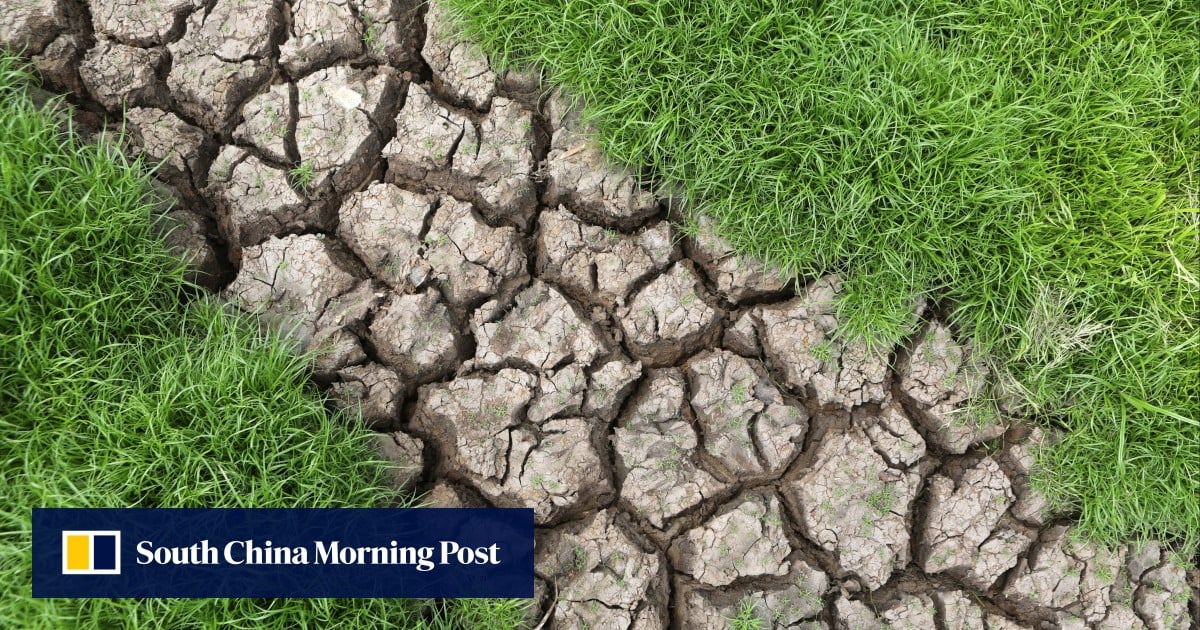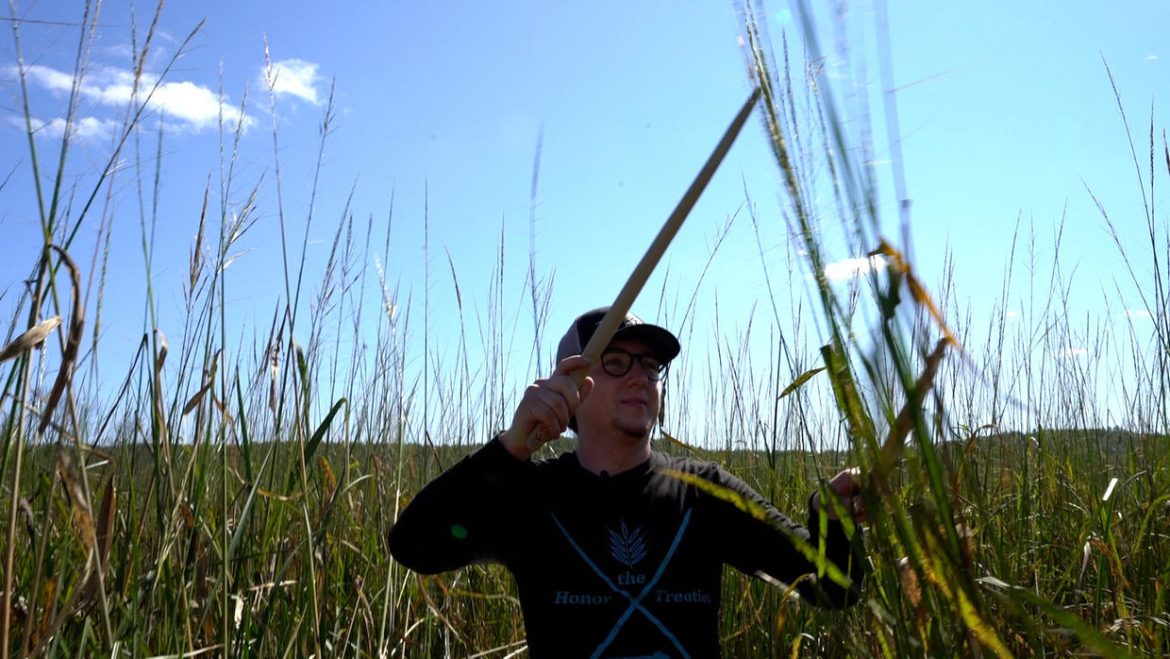
Without urgent action to limit global warming, women and girls around the world are at risk of increased and more extreme forms of violence.
—
Climate change is fueling gender-based violence around the world, according to a new issue brief by the UN Spotlight Initiative – the UN’s high-impact initiative to end violence against women and girls. As rising temperatures put pressure on natural and human systems, women and girls in affected regions find themselves in increasingly precarious positions, at the mercy of increasing forms of violence.
The UN study, published in April, backs decades of warnings from feminist and women’s organizations pointing to the link between climate change and violence against women and girls.
Globally, nearly one in three women has suffered from some form of physical or sexual violence, often at the hands of intimate partners. Experts note this figure could be significantly higher as many cases of violence go unreported due to stigma, lack of access to healthcare services or lack of information. As a result, violence against women and girls is often referred to as a “shadow pandemic”.
As the planet gets hotter and extreme weather events become more frequent, the report warns that gender-based violence will further escalate. By 2090, 10% of cases of intimate partner violence will be caused by climate change, with a predicted 4.7% increase in violence for every 1C-rise. While climate change does not directly cause violence, it intensifies pre-existing socio-economic and environmental factors that negatively impact women and girls, putting them at risk of increased violence. This includes financial instability, water scarcity, food insecurity, loss of shelter and conflict.
As these converging issues worsen under the pressure of climate change, they collide with entrenched inequalities, reinforcing patriarchal norms and marginalization.
The report also warns that for women and girls already suffering from violence, the severity and forms this violence takes could increase in the future. This includes femicide, trafficking, child marriage and rape as a weapon of war. Certain groups are also at disproportionate risk of violence, such as women environmental human rights defenders.
“In public and political life around the world, many women and girl human rights defenders, women journalists and women who run for or hold public office and political decision-making positions are attacked viciously and often suffer gender-based violence,” said Volker Türk, UN High Commissioner for Human Rights.
“Such acts are deliberate, directed at those seen as challenging traditional notions of family and gender or harmful traditional social norms. They are very often sexist, sexualised, and misogynistic, silencing and censoring their voices, and exacting profound physical and psychological harm. Their purpose is clear: to exercise control, to perpetuate subordination, and to crush the political activism and aspirations of women and girls.”
 View of Daynile, Mogadishu, a district in Somalia hosting large numbers of displaced persons who had to abandon their homes due to drought. Photo: Ismail Salad Osman/IOM.
View of Daynile, Mogadishu, a district in Somalia hosting large numbers of displaced persons who had to abandon their homes due to drought. Photo: Ismail Salad Osman/IOM.Women from Indigenous communities in particular are at risk of harassment, defamation, sexual violence, physical attack and femicide. Other categories at risk include women from climate-vulnerable regions, rural smallholder farmers, the urban poor, as well as those facing intersecting forms of discrimination such as disability, sexual orientation or age.
Stories From the Horn of Africa and Hawaii
The report found that violence at the hands of a partner could increase by as much as 28% during heatwaves. Similarly, increases in human trafficking, sexual exploitation and abuse have been observed in response to displacement or gradual environmental changes like desertification.
 Satellite imagery of the Horn of Africa in 2021. Image: MODIS Land Rapid Response Team, NASA GSFC.
Satellite imagery of the Horn of Africa in 2021. Image: MODIS Land Rapid Response Team, NASA GSFC.Between 2020 and 2023, the Horn of Africa region was thrown into profound food insecurity after recurring, climate change-induced cycles of extreme drought triggered the loss of livestock and crop production for local populations. Facing severe economic insecurity, families were pushed to the edge and in some cases resorted to marrying off “girls as young as twelve to men more than five times their age,” according to Andy Brooks, UNICEF’s Regional Child Protection Advisor for Eastern and Southern Africa.
As rainy seasons shorten and annual rainfall is reduced, water sources dry up and families are faced with impossible choices. Endure famine or marry off their daughters in order to feed the rest of the family thanks to a dowry, have one less mouth to feed or in the hopes of securing a better future for their child.
In Hawaii, a study published last year details a different pattern of violence that emerged following the 2023 wildfires in Lahaina, Maui. The devastating fires – at the time the deadliest in the US of the past century – displaced thousands of people and left them without access to essential resources. During this time of heightened vulnerability, sexual exploitation and intimate partner violence soared, particularly among Filipino migrant women workers, according to the study.
 Maui’s community of Lahaina burned by wildfires in 2023. Photo: Wikimedia Commons.
Maui’s community of Lahaina burned by wildfires in 2023. Photo: Wikimedia Commons.Findings show that in the aftermath of the wildfires, one in six female survivors from the Filipino community reported feeling obligated to engage in sexual acts in exchange for basic necessities like food, clothing, money and shelter. More than half of the women surveyed said they experienced more conflict at home and in their relationships, while 21% reported feeling unsafe in the places where they sought shelter.
No Climate Justice Without Women at the Table
Despite the wealth of evidence linking climate change and gender inequality, Spotlight Initiative highlights that just 0.04% of climate-related development funding is geared towards tackling gender equality. The report calls for an integration of gender-based violence prevention and response at every level of climate policy in order to mitigate the adverse impacts of climate change on women and girls.
It is also imperative that women environmental human rights defenders be protected from violence and meaningfully included in shaping the climate policies that affect their communities. In a recent address, Romina Khurshid Alam, Coordinator to the Pakistani Prime Minister on Climate Change, said that the role of women in climate action “cannot be ignored.”
Without the full representation of women’s voices at every level of climate decision-making, critical issues like gender-based violence are at risk of being sidelined or forgotten entirely.
Featured image: Mika Baumeister/Unsplash.
💡How can I contribute to a more sustainable planet?
- 🗳️ Vote for climate action: Exercise your democratic rights by supporting candidates and policies that prioritize climate change mitigation and environmental protection. Stay informed with Earth.Org’s election coverage.
- 👣 Reduce your carbon footprint: Make conscious choices to reduce your carbon footprint. Opt for renewable energy sources, conserve energy at home, use public transportation or carpool, and embrace sustainable practices like recycling and composting.
- 💰 Support environmental organizations: Join forces with organizations like Earth.Org and its NGO partners, dedicated to educating the public on environmental issues and solutions, supporting conservation efforts, holding those responsible accountable, and advocating for effective environmental solutions. Your support can amplify their efforts and drive positive change.
- 🌱 Embrace sustainable habits: Make sustainable choices in your everyday life. Reduce single-use plastics, choose eco-friendly products, prioritize a plant-based diet and reduce meat consumption, and opt for sustainable fashion and transportation. Small changes can have a big impact.
- 💬 Be vocal, engage and educate others: Spread awareness about the climate crisis and the importance of environmental stewardship. Engage in conversations, share information, and inspire others to take action. Together, we can create a global movement for a sustainable future.
- 🪧 Stand with climate activists: Show your support for activists on the frontlines of climate action. Attend peaceful protests, rallies, and marches, or join online campaigns to raise awareness and demand policy changes. By amplifying their voices, you contribute to building a stronger movement for climate justice and a sustainable future.
For more actionable steps, visit our ‘What Can I do?‘ page.
This story is funded by readers like you
Our non-profit newsroom provides climate coverage free of charge and advertising. Your one-off or monthly donations play a crucial role in supporting our operations, expanding our reach, and maintaining our editorial independence.
About EO | Mission Statement | Impact & Reach | Write for us
About the Author

Céline Mulrean

Céline is a policy researcher and writer based in Rome, Italy. Having lived in ten countries across three continents, she brings a global perspective to her work, which focuses on translating complex policy issues into clear and engaging content. A graduate of LUISS Guido Carli and CIFE with a Master’s in Global Economic Governance and Public Affairs, Céline has worked with a wide range of NGOs on issues ranging from the Sustainable Development Goals to sports sustainability. Through her writing, she seeks to inform and inspire action for a more just and sustainable world.
You Might Also Like
Subscribe to our newsletterHand-picked stories weekly or monthly. We promise, no spam!
SUBSCRIBE






 English (US) ·
English (US) ·